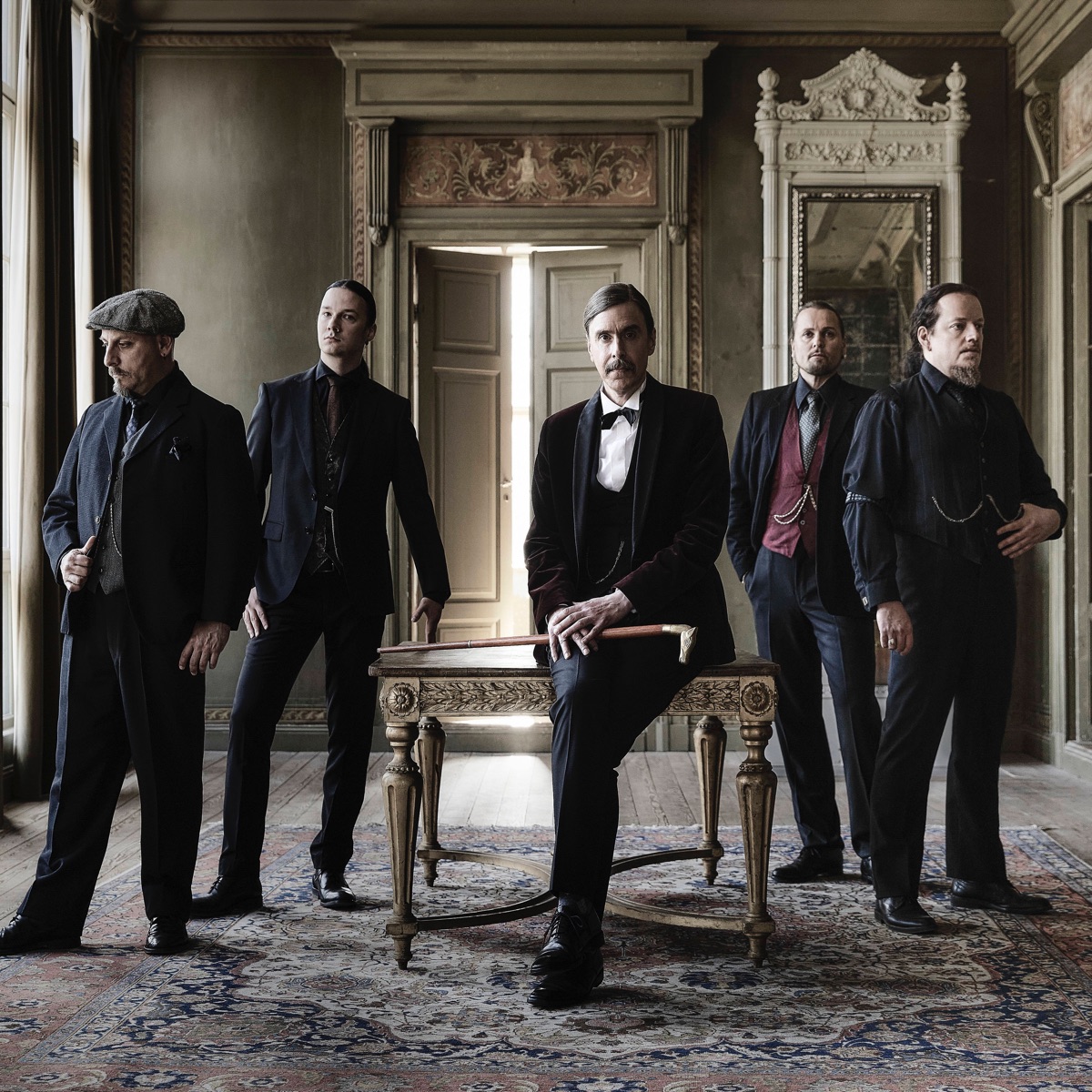
Written by Oskar Vier
Published on 17.10.2025
I challenged myself to get into legendary Swedish Death Metal and Progressive Rock band Opeth, who are among the only artists to have seven "must hear" albums in a row on AOTY. Here's what came out of it.
Discography Deep Dive: OPETH Albums Ranked
I have never been a fan of Opeth. I have always been sceptic of Opeth. I don't even know where that originated from. I think I heard of them sometime back when and decided it wasn't for me. I believe I tried them a few times and always found what I heard to be uninspired, cold and pretentious. Some people in my life might have reinforced that belief, when they voiced their dislike for Opeth too. It was easy to agree. And then my friend Matti played to me Blackwater Park and Damnation. I was not really impressed. But because he was so obsessed with the band and because all the music forums I know glaze Opeth to death (they probably have the best rated album-run of seven on albumoftheyear.org), I really wanted to get it. I wanted to understand what everyone found that I couldn't hear. The answer is kind of an in-between, which will become apparent in the following ranking of all Opeth albums…
Disclaimer: Please notice that this article is still being completed. Right now, two albums are still missing from the list: Morningrise and Heritage.
14. In Cauda Venenum (2019)
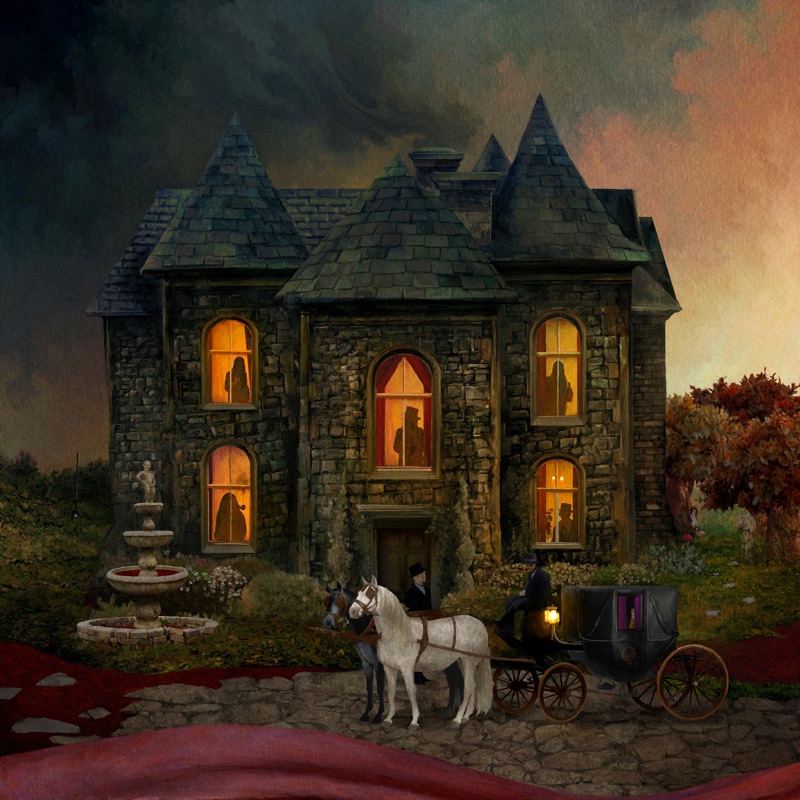
In Cauda Venenum is the second last album released by Opeth at this point in time. It is also the fourth and last of their Progressive Rock albums so far and I can't say I'd be sad if they'd leave it at that. I really wanted to like this album because this is the only LP they've put out that is also available sung fully in Swedish. I listened to both the English and the Swedish version and personally, I enjoy the English version a little more, which doesn't make much sense considering some of the lyrics on this album are amongst Opeth's very worst. They try some socio-political commentary on this one and it's just very shallow, corny and even a little out of touch at points, which is fine but I can't help but critique that. But who really listens to Opeth lyrics anyway? We are here for the music… and the music is incredibly goofy and clunky on too many occasions. In Cauda Venenum is definitely more adventurous and ambitious than its three predecessors of Newpeth, but it honestly just suffers from it. The vocals are over the top and theatrical, which in and of itself would be barely respectable, but combined with the lyrical content and the instrumentation, it makes the album just feel pretentious and indulgent. Songs like Next of Kin and Charlatan encapsulate many a thing that's wrong with Prog, while the poppy moments of the album, most notably Lovelorn Crime, just feel awfully bland and empty. Overall, this is the biggest nothing burger out of Opeth's Prog albums. It seems to be an improvement at first, but quickly turns out to be another boring Prog endeavour in a chic dress-up.
Best Tracks: “All Things Will Pass”, “Heart In Hand”
Worst Tracks: “Dignity”, “Charlatan”, “Universal Truth”
13. The Last Will and Testament (2024)
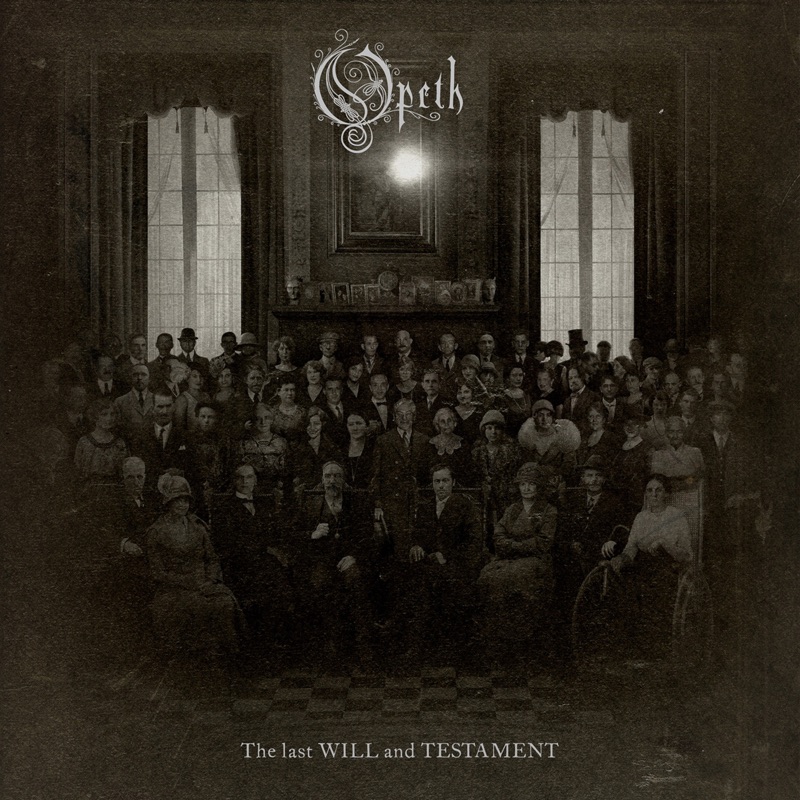
The latest album by Opeth was considered by many to be a return to form. It's very easy to understand why: the band finally makes Metal again. This is almost as much a Death Metal album as it is a Progressive Rock album, so to speak. Where many people err is: that doesn't automatically fix things. Many of the songs here are once again too long and some lack next to all substance, therefore coming off as pointless wankery. It doesn't help that Opeth continue the – quote, unquote – experimental elements from In Cauda Venenum (like theatrical vocal harmonies or dated synthesizers), which are even more goofy in the context of Death Metal. The Last Will and Testament does have some cool moments though. The problem is that they're either obscured in a labyrinth of uninteresting sections, or that they aren't particularly memorable themselves. Songs tend to blend into each other and that's no surprise considering the concept of the album, which seemed to require not giving the songs real titles, but just numbering them by paragraph (§). Ultimately, this is merely a decent entry in Opeth's discography.
Best Tracks: “§1”
Worst Tracks: “§2”, “§3”
12. Pale Communion (2014)
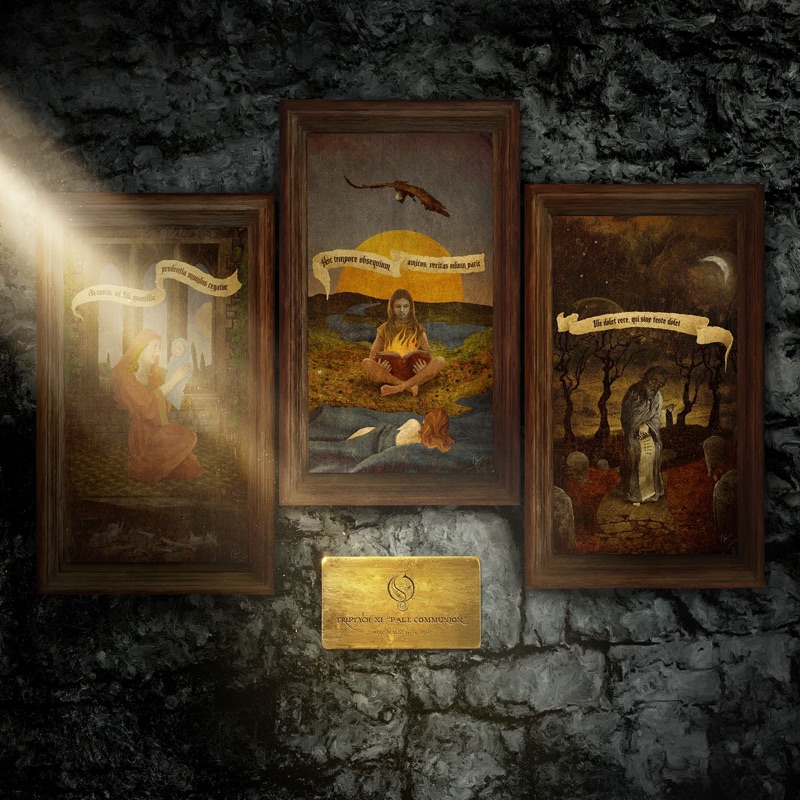
This is possibly the most standard Progressive Rock entry in Opeth's discography. There's nothing exciting about this album, but also nothing that I would say doesn't work in a way. The first two tracks are pretty good, then the rest just falls into Prog mediocrity for the most part. There's really nothing much to say about Pale Communion other than that I'm baffled so called “Prog nerds” seem to think this is one of their best albums? For fans of a genre that literally has the adjective progressive in its name, they seem to have pretty low standards. But good on you, if you enjoy this album. I do, somehow, in the background. For active listening though? This is less exciting than The Last Will and Testament and In Cauda Venenum for sure.
Best Tracks: “Cusp of Eternity”, “Eternal Rains Will Come”
Worst Tracks: /
11. Sorceress (2016)
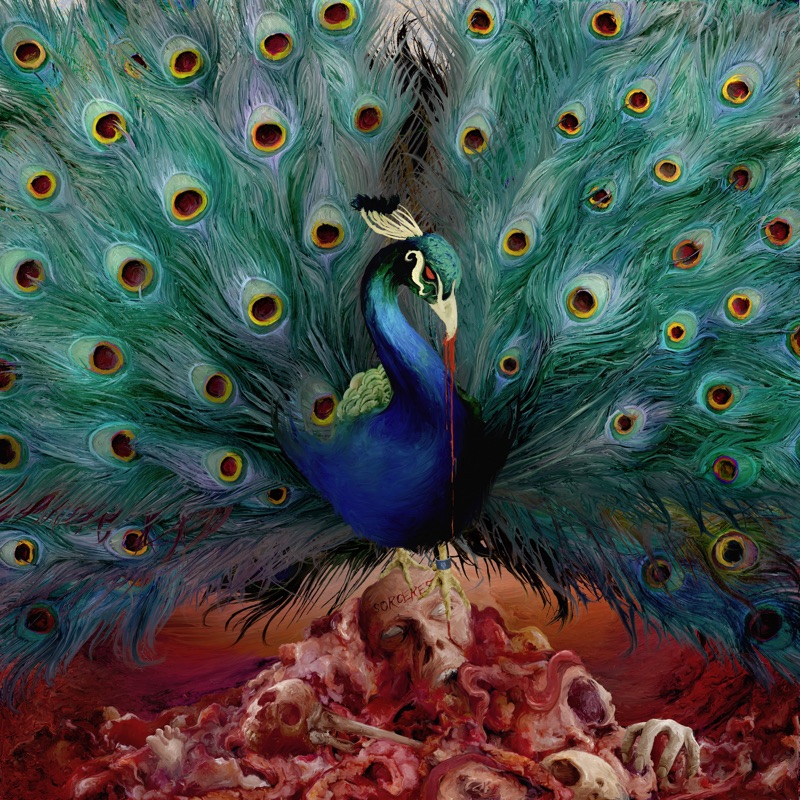
This is the follow-up to Pale Communion and I must say, it is definitely an improvement. Sorceress marks the middle-ground between that consistently fine but bland album and the over-the-top, more inconsistent but also more intriguing In Cauda Venenum, which does make sense considering that they are its predecessor and “successor”. The first four tracks from Sorceress are probably the best to come out of Opeth's clean Prog era. Don't get me wrong, they don't hold a candle to what they did before, but it's good stuff. The rest of the album excluding the awfully bland and anthemic final track Era is enjoyable too and has some interesting and atmospheric instrumental moments too. If Pale Communion was leaning into a Symphonic Prog direction, Sorceress goes down more of a Heavy Psych route and Opeth do that solidly and in a more intriguing way. Not to mention it doesn't feel so derivative, dated and like nostalgia farming. Plus points for the cool album artwork too! It does stand out as quite majestic among the mostly boring or downright terrible artwork from the rest of the era.
Best Tracks: “The Wilde Flowers”, “Will o the Wisp”, “Sorceress”, “Chrysalis”
Worst Tracks: “Era”
10. Heritage (2011)

Opeth move into a new decade with what is the biggest breaking point in their entire discography. Heritage is the album where Opeth abandoned all things Metal and embraced their ‘70s roots. Thus, it's not difficult to see why Heritage became the band's most polarising album ever. Interestingly, at least to me, it is also one of their least liked albums (along with Sorceress, which is the second best “Newpeth” album in my opinion) by Prog nerds (as you can see on progarchives.com for example). Why? Well, I guess it's because Heritage, out of the “Newpeth” albums, is probably the least strictly Prog album. So, no, it is not like many critics of this album want you to believe; this is not "Opeth going full Prog”. That the album's style lends itself to more than just strict '70s Prog might be one factor as to why I prefer it to the more stale Nostalgia-Prog offering Pale Communion – the average Prog fans favorite Newpeth album. It's also not as overly theatrical as In Cauda Venenum, and – to distinguish it from Sorceress – it doesn't have a big stinker of a song like Era. Above all though, Heritage is the most emotive Newpeth album. There's quite a bit of beauty to be found in many of the slower passages on this album – and there's a lot of them. At various points, Heritage likens itself to Opeth's best non-Metal album (by a mile), Damnation. At the same time, it knows how to groove and rock-out – of course without ever becoming metallic. It's not like I particularly like this album, but I find it to be enjoyable, which makes it at least as good as Pale Communion, a little interesting to listen to, which makes it at least as good as Sorceress, and consistent until the very end at the same time, which kind of makes it the best of the Newpeth era. If you're not into Neo-Prog noodling, I wouldn't recommend it regardless though. And take my ratings on these with a grain of salt because they are very difficult to really distinguish from each other, especially if you don't want to spin them half a dozen of times.
Best Tracks: “The Devil's Orchard”, “Folklore”, “The Lines in My Hand”
Worst Tracks: “Slither”, “Nepenthe”, “Famine”
9. Ghost Reveries (2005)
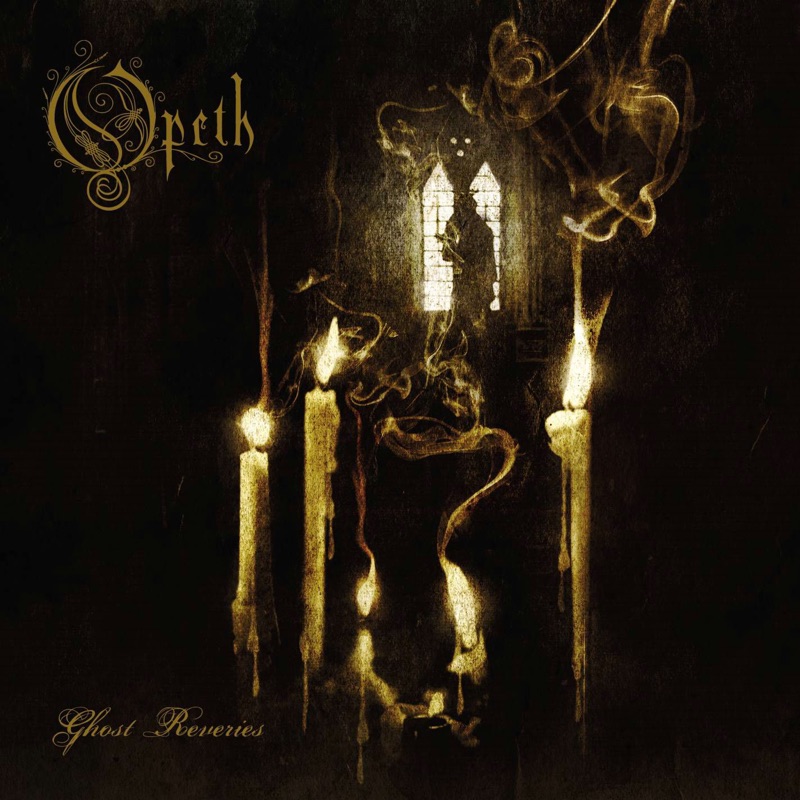
And so we come to the most overrated album in Opeth's discography. To me, Opeth has rarely been a truly and consistently phenomenal band, but they had often been great in their hayday. Ghost Reveries would be were the cracks started to come to light. It is the beginning of the end, dramatically said. Fittingly, the beginning of the end starts with what might be Opeth's best song and one of the best Metal songs of all time, even I wouldn't deny that if you told me so, although I don't fully buy into that idea. Ghost of Perdition is extraordinary. The balance between Death Metal and Progressive Rock is perfect here and the song is filled with thrilling twists, amazing riffs and all-around great hooks. This song is addicting and one of the rare times, where Opeth actually earn the 10-minute+ runtime. Maybe it is this amazing opening that tricks people into thinking this is a top 3 Opeth album or – (probably non-existent) god forbid – one of the best Metal albums ever. All of the other Prog Death Metal opuses on this album disappoint, except for The Grand Conjuration and that song is almost a little too pretentious. The other “highlights” from Ghost Reveries can be found in the quieter moments, like Hours of Wealth and Isolation Years, but they are not outstanding in the larger context of Opeth's discography and honestly, this kind of stuff is not why anyone reaches for Opeth to listen to, nor does it constitute an album considered to be – by many – a masterpiece. As Opeth's least Death Metal Metal album so far, Ghost Reveries marks an important step towards what the band became during the 2010s and it – at the very least – shows glimpses of why this time is rightfully considered the worst in the band's career so far. This is the most pointless Opeth's long tracks have ever been.
Best Tracks: “Ghost of Perdition”
Other Highlights: “Isolation Years”, “Hours of Wealth”, “The Grand Conjuration”
Worst Tracks: “Beneath the Mire”, “Atonement”
8. Watershed (2008)
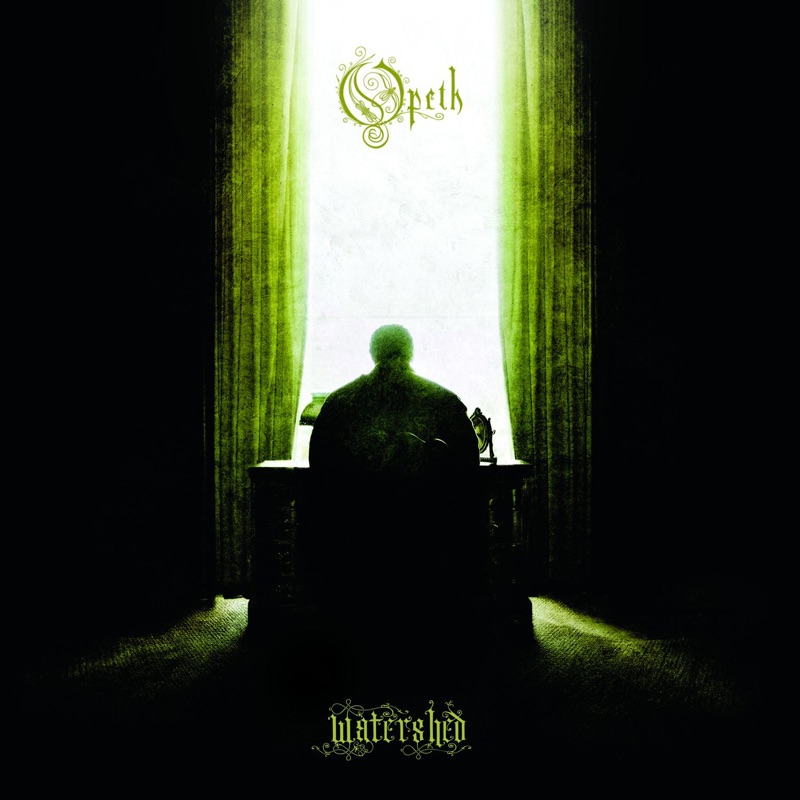
After their 2005 album Ghost Reveries, an era ended for Opeth: their drummer Martin Lopez quit the band while touring. He was the driving force behind their most acclaimed and beloved albums from 1998s My Arms, Your Hearse onwards. For the rest of the tour, their next album Watershed and eventually all their subsequent Progressive Rock releases, Martin Axenrot joined the band. Another switch of drummers was made for 2024s The Last Will and Testament. Like with the previous roster changes behind the kit, the band sounds energised on Watershed and Martin Axenrot has his standout moments, like the blast beats in The Lotus Eater or his drum fills on Porcelain Heart. Despite that, Watershed feels a little stale overall though. Don't get me wrong, there are some new ideas at play here, but throughout the album, it becomes clear to me that and why Opeth needed to move on to something else entirely. Watershed doesn't feel like that transitional album towards what Opeth would become though; it marks more of a step back from the experimentality and changes from its predecessor Ghost Reveries. The only track that points right into the direction they would eventually head into is the album's worst song Burden. This is a straight Prog Rock track with no growls and I'd probably like it better if it had landed on one of Opeth's later records. There is an incredible organ solo in it though. And that's the thing with songs on Watershed. They all have their incredible moments, but on the whole, it feels like they buried beneath more slog to get through than normally, like on Ghost Reveries but with the difference that I like the musical direction here more and find the tunes and hooks to be stronger. A special shoutout goes out to Heir Apparent, one of Opeth's most brutal and wild songs ever. Everything else on the album is just very solid Opeth material. I don't like this as a talking point about albums generally, but I think it fits here for once: Watershed is kind of a samey album – in and of itself and in context of what came before, which is a shame because it probably sits in the most interesting spot in Opeth's discography. Well, little did we know that Opeth, for over 15 years, wouldn't come up with another album on this level…
Best Tracks: “Heir Apparent”
Other Highlights: “The Lotus Eater”, “Porcelain Heart”
Worst Tracks: “Burden”
7. Morningrise (1996)
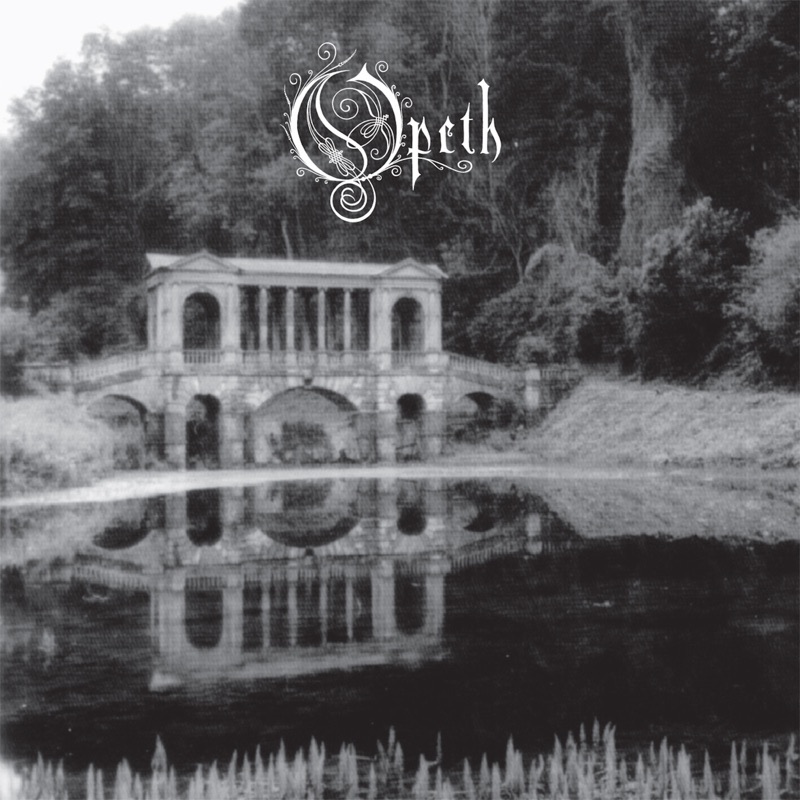
Opeth's second album Morningrise is one I'm still skeptical of because I don't entirely like the way the band evolved from their debut, when you look at the two albums in a vacuum. Morningrise has only songs above the 10-minute mark (Black Rose Immortal is startling 20 minutes long!) and doesn't feature any interludes. The music here is a lot more bleak. The songs are more composed and put more emphasis on the Metal side of things. The Doom and Psychedelia from their debut is mostly pushed into the background, instead the sound of the heavier sections is narrowed down to Melodic Black (and -Death) Metal. Even the production quality isn't greatly improved in my opinion, as I like the sound of Morningrise a little less overall. A big highlight from this album are the bass performances though. The bass really sticks out of the mix at multiple points and some absolutely ridiculous lines are put to tape.
However, the biggest difference from the debut lies in intention: Morningrise is a concept album like Opeth would make them over and over again in the future – in better ways. Listening to Morningrise, I kind of find myself wanting to listen to Still Life instead. Overall, I find my feelings towards this album to be a little confused and more intuitive than thoroughly grounded in any kind of expressable reason. I guess, if you want to have a middle ground record between Orchid and Blackwater Park or Deliverance, you would really like this. To me, Morningrise is good, but just a little too meandering, slow and bleak. To Bid You Farewell is one of their best early songs though – that intro alone is so beautiful…
Best Tracks: “To Bid You Farewell”
Other Highlights: “Advent”, “Nectar”
Worst Tracks: “The Night and the Silent Water”
6. Orchid (1995)
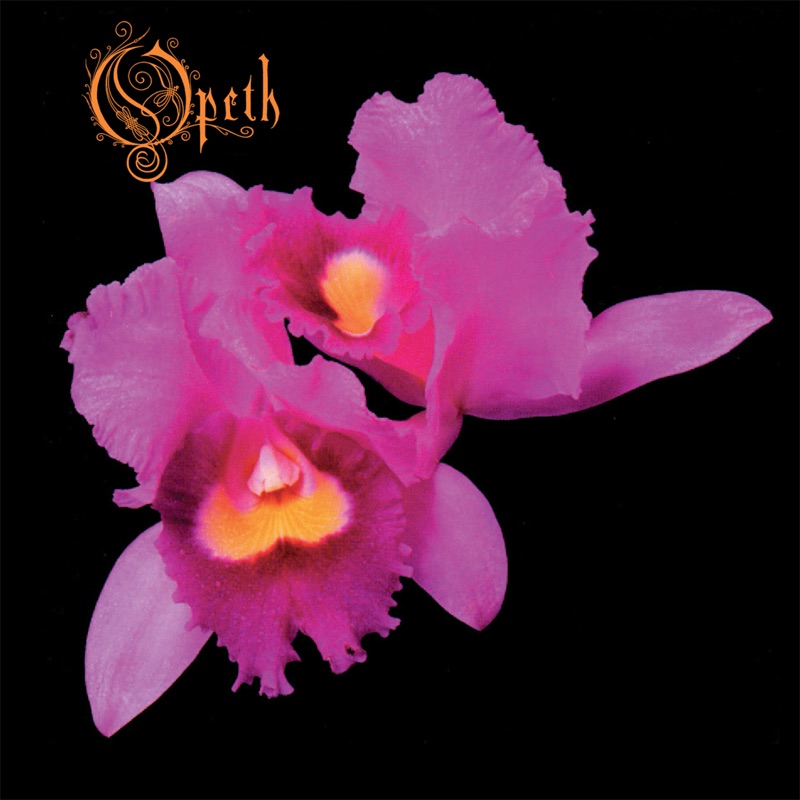
And so we land at the beginning of it all: Orchid, Opeth's debut album from 1995. This is very near and dear to many a fan's heart and that's totally understandable not only because of nostalgia but primarily because Opeth would never again release an album like this. Orchid is exceptionally improvisational for an Opeth album and in that lies the beauty of it. This is not as planned through and polished as later works, instead the band are having lots of fun. The passion seeps through every pore of this album, and still the foundations for what Opeth would become from the late ‘90s to the late 2000s are here: long songs, a mix of Extreme Metal and folksy passages as well as growled and clean vocals. But instead of the well known Neo-Progressive stylings that would progressively overtake their compositional approach, the songs feel a lot more loose. Their sound also isn’t as narrowed down to Death- and Prog Metal, instead we find influences of Doom Metal, Psychedelia and Black Metal. I was thoroughly surprised by how good this album is and despite its admittedly more amateurish production style – this is obviously more lo-fi and '90s sounding – it sounds very enjoyable in the new Abbey Road Remaster (those are my go-to versions for its two successors too). Definitely do not shy away from Orchid!
Best Tracks: “In the Mist She Was Standing”, “Under the Weeping Moon”, “The Twilight Is My Robe”, “The Apostle In Triumph”
Worst Tracks: “Silhouette”, “Forest of October”
5. Damnation (2003)
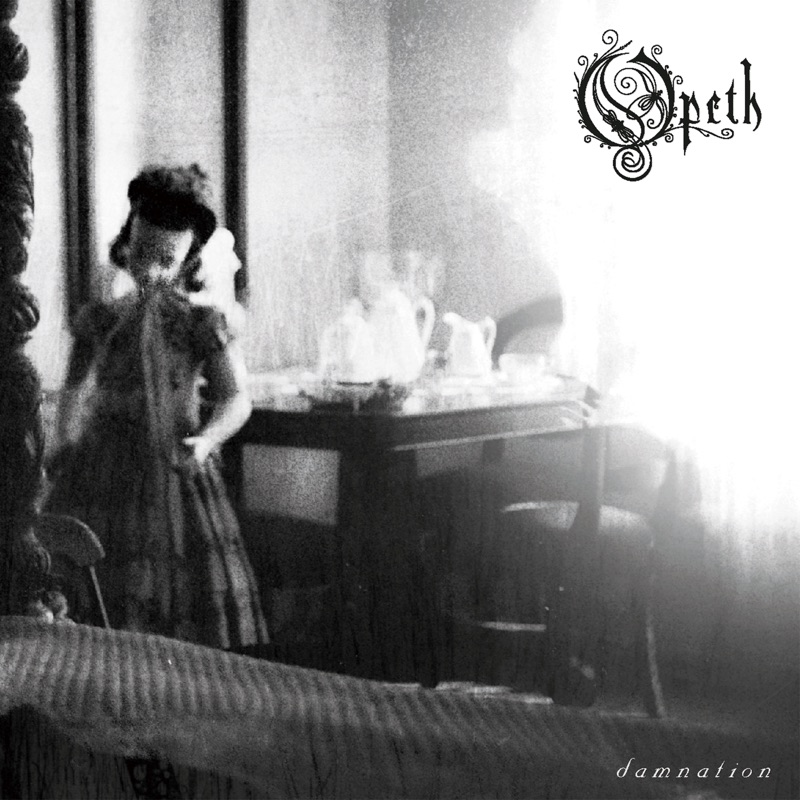
In 2002 and 2003, Opeth released their second and third albums with Steven Wilson on production, and what is theoretically a double LP. Mikael Akerfeldt wanted to make the band's heaviest album yet, and somehow ended up writing their softest songs yet. Those would be compiled into the second installment of this era: Damnation, which would surprisingly become one of Opeth's best and most beloved albums. It's not hard to see why: Damnation is expertly produced and mixed, incredibly well performed, outstandingly atmospheric and features some of Akerfeldt's stickiest songwriting to date. From the guitar playing to the drum patterns to the vocal refrains, Damnation delivers lots of extremely satisfying harmonies, melodies and rhythmical arrangements. Despite completely abandoning any Metal elements, the band still manage to keep things intriguing for almost the whole album, which is courtesy of the songwriting remaining pretty dynamic. It's a shame that this sound and the lessons the band learned wouldn't really go anywhere in the future. All the more reason to suspect that Opeth's ceiling is the highest when they are playing their brand of Progressive Death Metal.
Best Tracks: “Windowpane”, “In My Time of Need”
Other Highlights: “Death Whispered a Lullaby”, “To Rid the Disease”
Worst Tracks: “Weakness”
4. Blackwater Park (2001)
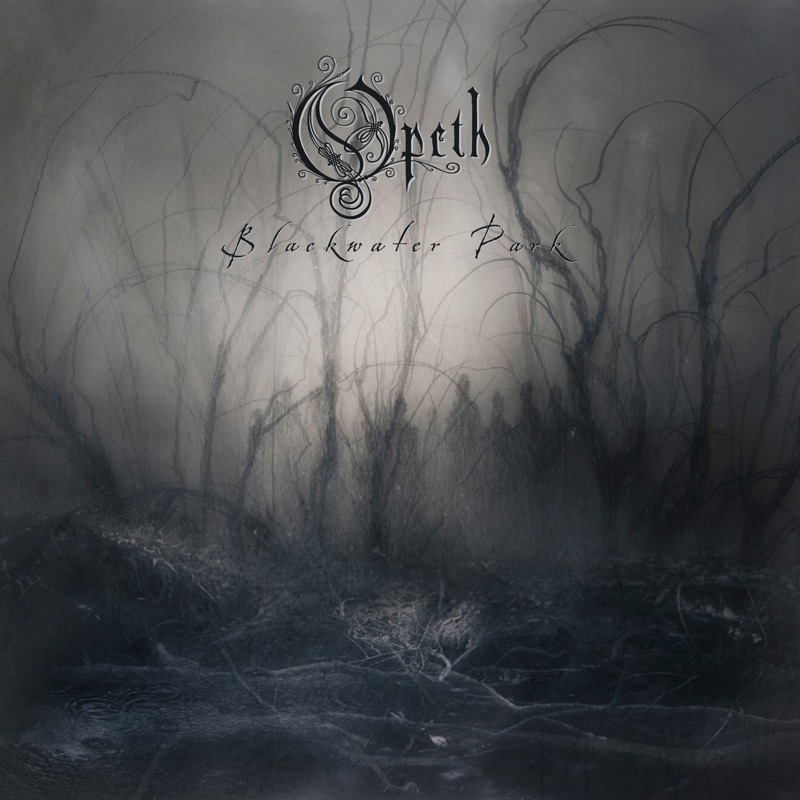
You may have thought that the placement of Ghost Reveries would be my most controversial here, and that's still probably the case, but many might have expected Blackwater Park to take the first spot or at least land in the top 3. Well, ladies, gents and everyone who doesn't fit in that binary system, you were wrong. On the risk of sounding like a total contrarian, I'm not gonna hammer in that point more and just start with saying that I think this is a great record. The first half of Blackwater Park might be the best thing Opeth have put out. The Leper Affinity, Bleak and The Drapery Falls are all in the discussion for the best Opeth song and Harvest is one of the best calmer folksy tracks by them. The second half is where my problems with this album lie buried. We start to dig them out with Dirge of November and The Funeral Portrait – both great songs, but not on par with what came before. Patterns in the Ivy and the title track are what really drags Blackwater Park down though. Especially the title track feels formulaic and above all way too long considering not too much happens in it compared to other tracks of extended length from this era, while Patterns in the Ivy is a short instrumental piece that serves no point whatsoever. I think it's these two that keep me from fully falling in love with this album – and the abstract feeling that there's just a little too much of Steven Wilson in here…
Best Tracks: “The Leper Affinity”, “Bleak”, “The Drapery Falls”
Other Highlights: “Harvest”, “Dirge for November”, “The Family Portrait”
Worst Tracks: “Patterns in the Ivy”, “Blackwater Park”
3. Deliverance (2002)
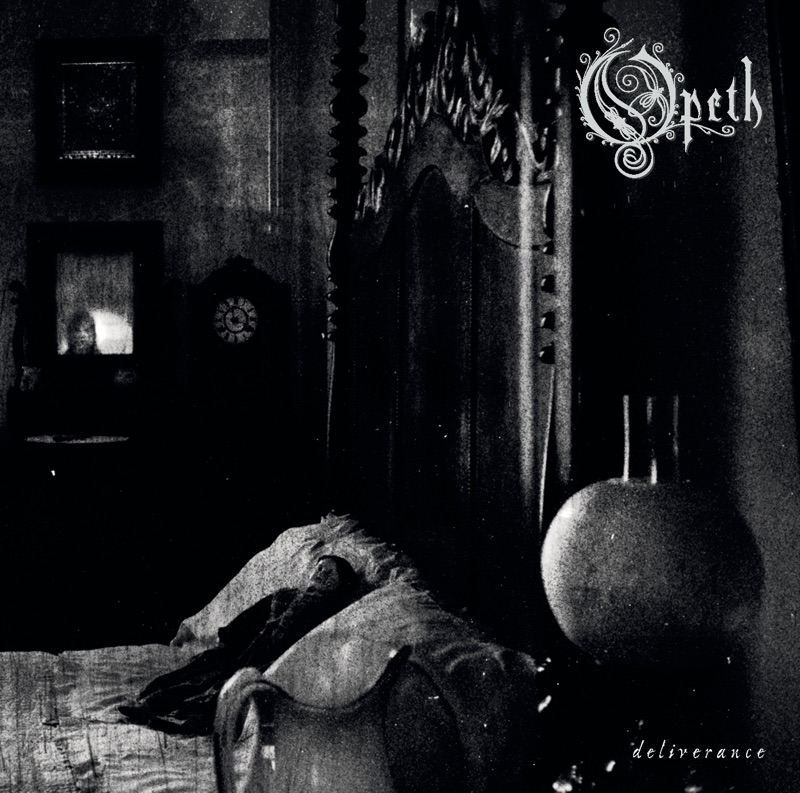
To the average Opeth fan, the footsteps of Blackwater Park were almost impossible to fill, and so, to many, the band didn't with their follow-up record Deliverance. This is the first part to their theoretical double LP, preceeding Damnation, and the two are polar opposites in Opeth's discography because Mikael Akerfeldt really succeeded in making the band's heaviest record, only rivalled by 1998s My Arms, Your Hearse. Deliverance starts off with Wreath – and this is almost the kind of song I always wanted from Opeth. An 11 minute epic up to their standard, but without too many Alternative Rock or Folk stylings. Instead, this is pretty much a non-stop barrage of Prog Death and all the better for it. The second song and the title track is an absolute fan favorite amongst Opeth fans and this time, they are right! Deliverance might be the only song capable of dethroning Ghost of Perdition. The ending section of this track is probably the most amazing thing Opeth have ever done, in my opinion. The rest of the album is great too: A Fair Judgement is a bit too convoluded for its own good, but still delivers great riffs, hooks and atmosphere in abundance, and Master's Apprentices is just as amazing as Wreath. Once again though, Opeth don't come away from a record without significant weaknesses, although they are smaller than on Blackwater Park. I have three of them for you. Firstly, For Absent Friends is another acoustic guitar filler track just like Patterns in the Ivy, that does nothing but lengthen an already massive album runtime with enough acoustic sections. Secondly, and this is about said runtime, this might be Opeth's most daunting album just looking at the track listing. Except for For Absent Friends, all songs on this album are well above 10 minutes and there's five of them. This might be factor for why many don't rank this as high as Blackwater Park. And thirdly, contributing to the daunting nature of Deliverance, the last track By the Pain I See In Others, which is the weakest of the bunch anyway, features a really unnecessary amount of silence at the end just to get to a creepy outro that could've been cut completely. I guess it fits with the sprawling nature of this era of Opeth though. Deliverance might not have the status of Blackwater Park, which is the album that got the bonus for introducing this sound and collaboration, but it is the better one to me by a slight margin.
Best Tracks: “Deliverance”
Other Highlights: “Wreath”, “Master's Apprentices”, “A Fair Judgement”
Worst Tracks: “For Absent Friends”
2. My Arms, Your Hearse (1998)
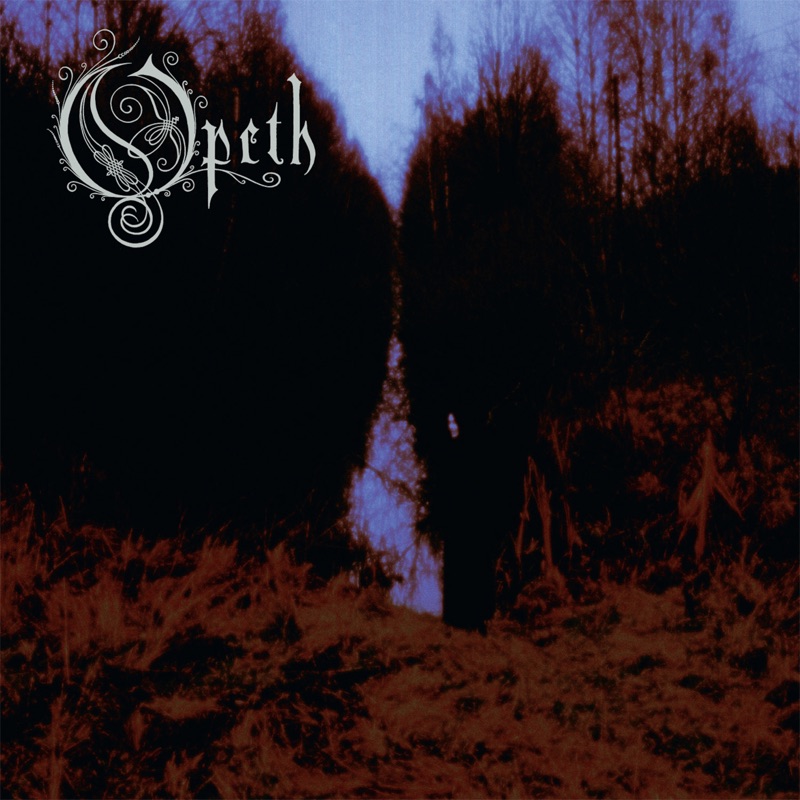
After two relatively amateurishly produced albums, Opeth finally came into their own on their third album, My Arms, Your Hearse. This is the album where drummer Martin Lopez joined the band. Even Martin Méndez, who is Opeth's bassist to this day, became part of the band in the wake of My Arms, Your Hearse, although he didn't contribute any music at this point. So arguably, this is the most formative era for the band – and its associated album follows suit. Yes, My Arms, Your Hearse isn't nearly as refined or hooky as albums like Blackwater Park, but the album delivers some of Opeth's most straightforward and heavy material and comes with production that – in a similar way – isn't absolutely perfect, but has so much character, I couldn't help but feel drawn to this album when I first engaged with Opeth's catalogue. Some of the guitar lines in April Ethereal, the iconic chorus in Demon of the Fall or the superb folksy track Credence all clearly show what the band is capable of, but in a more undistilled and raw form that makes their musical approach seem much less calculated than it would on future releases.
Best Tracks: “April Ethereal”, “Demon of the Fall”
Other Highlights: “Karma”, “Credence”, “The Amen Corner”, “When”
Worst Tracks: /
1. Still Life (1999)
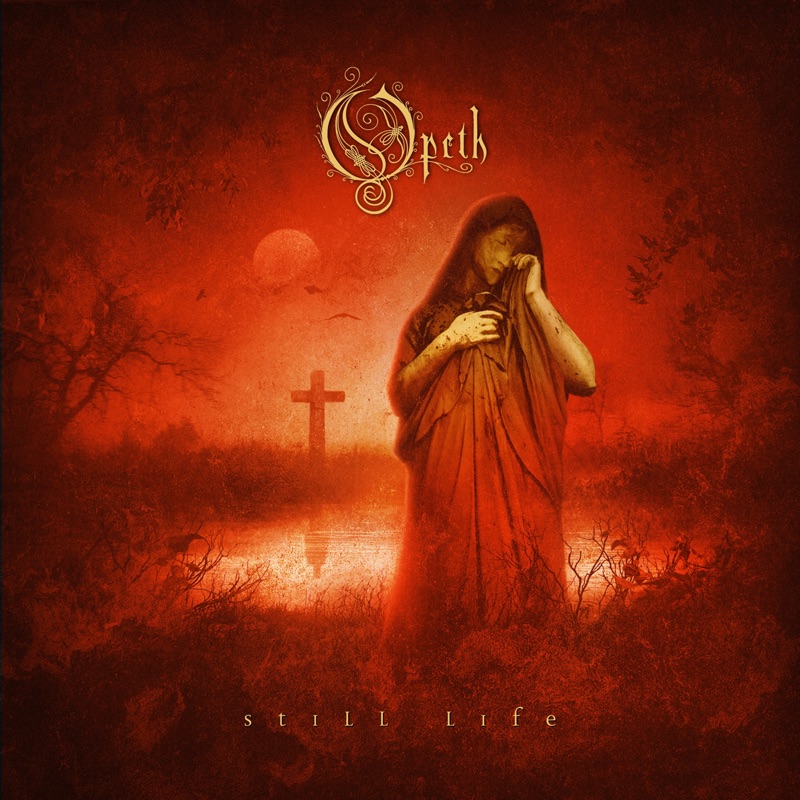
The unchallenged best Opeth album to me is Still Life. Still Life is Opeth's most consistent and coherent album and honestly, if you like the kind of style the band has generally, I can see no fault in this album at all. It doesn't quite reach the heights of Blackwater Park, Deliverance or Ghost Reveries, sure, but there are only great and greater songs on this record, and the best thing about Still Life is that these songs are tightly knit together by the most well written and graspable narrative Akerfeldt has come up with so far. This album tells a medieval love story that ends in tragedy because of radical Christianity. When the album's Black narrator is banished from town for his lack of faith, his partner Melinda eventually turns to the church in his absence. After being gone several years, the narrator returns, eventually meets Melinda again and the two fall in love again. The church finds out and hangs Melinda for breaking her oaths. When the narrator finds out, he goes on a rampage and violently kills the people that have murdered her. For that, he is eventually hung too and welcomed to the afterlife by Melinda. It's not the most original plotline ever but very serviceable for a Death Metal album and original in the way that love is not often the central theme to an album of this genre. I also like the narrative for its criticisms of racism and religious fanaticism.
Musically, Still Life benefits from its more harsh production compared to everything that came after starting with the Steven Wilson produced albums. Some very strong riffs land on this album too. Generally, the guitar work and refrains are all good and Akerfeldt's vocal performances follow suit, although he isn't quite as good both with his clean vocals and his growls as he will get to be. Still, in the overall package, Still Life offers the best of all worlds. It is here, where Opeth strike a nice balance between everything that makes them great and don't overdo it on any front (song lengths, repetition, acoustic passages etc.). They would hit higher levels occasionally but never consistently over a full album and that's why Still Life is my definitive pick for the best Opeth album.
Best Tracks: “Moonlapse Vertigo”, “The Face of Melinda”, “White Cluster”
Other Highlights: “Serenity Painted Death”, “Benighted”, “The Moor”, “Godhead's Lament”
Worst Tracks: /